-
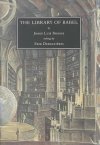
The Library of Babel
Jorge Luis Borges
The Library exists ab aeterno. This truth, whose immediate corollary is the future eternity of the world, cannot be placed in doubt by any reasonable mind. Man, the imperfect librarian, may be the product of chance or of malevolent demiurgi; the universe, with its elegant endowment of shelves, of enigmatical volumes, of inexhaustible stairways for the traveler and latrines for the seated librarian, can only be the work of a god. To perceive the distance between the divine and the human, it is enough to compare these crude wavering symbols which my fallible hand scrawls on the cover of a book, with the organic letters inside: punctual, delicate, perfectly black, inimitably symmetrical.
-

The Information: A History, a Theory, a Flood
James Gleick
James Gleick, the author of the best sellers Chaos and Genius, now brings us a work just as astonishing and masterly: a revelatory chronicle and meditation that shows how information has become the modern era’s defining quality — the blood, the fuel, the vital principle of our world.
-
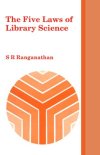
The Five Laws of Library Science
S. R. Ranganathan
- Books are for use.
- Every reader his book.
- Every book its reader.
- Save the time of the reader.
- The Library is a growing organism.
-
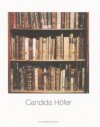
Libraries
Candida Höfer
For almost 30 years Candida Höfer has photographed interiors, mostly representational spaces accessible to the public, such as staircases, lobbies, reading halls or exhibition spaces. Rather than staging them, she takes their picture in the state she finds them, with great discreetness and a touch of humor.
-

The Cultures of Collecting
Roger Cardinal
This book traces the psychology, history and theory of the compulsion to collect, focusing not just on the normative collections of the Western canon, but also on collections that reflect a fascination with the “Other” and the marginal – the ephemeral, exotic, or just plain curious.
There are essays on the Neoclassical architect Sir John Soane, Sigmund Freud and Kurt Schwitters, one of the masters of collage. Others examine imperialist encounters with remote cultures – the consquitadors in America in the sixteenth century, and the British in the Pacific in the eighteenth – and the more recent collectors of popular culture, be they of Swatch watches, Elvis Presley memorabilia or of packaging and advertising. With essays by Jean Baudrillard, Thomas DaCosta Kaufmann, Nicholas Thomas, Mieke Bal, John Forrester, John Windsor, Naomi Schor, Susan Stewart, Anthony Alan Shelton, John Elsner, Roger Cardinal and an interview with Robert Opie.
-

The Master Switch: The Rise and Fall of Information Empires
Tim Wu
In this age of an open Internet, it is easy to forget that every American information industry, beginning with the telephone, has eventually been taken captive by some ruthless monopoly or cartel. With all our media now traveling a single network, an unprecedented potential is building for centralized control over what Americans see and hear. Could history repeat itself with the next industrial consolidation? Could the Internet—the entire flow of American information—come to be ruled by one corporate leviathan in possession of “the master switch”? That is the big question of Tim Wu’s pathbreaking book.
-

Library: An Unquiet History
Matthew Battles
Through the ages, libraries have not only accumulated and preserved but also shaped, inspired, and obliterated knowledge. Matthew Battles, a rare books librarian and a gifted narrator, takes us on a spirited foray from Boston to Baghdad, from classical scriptoria to medieval monasteries, from the Vatican to the British Library, from socialist reading rooms and rural home libraries to the Information Age.
-
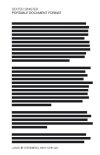
Dexter Sinister: Portable Document Format
Dexter Sinister
A library is a collection of books kept for use. That axiom is key to this sly little book, part of Sternberg’s White Pocketbook Series. Even the title is sly: the portable document format refers both to texts assembled in the -library- at dextersinister.org, and to this other amazing artifact of technology, a pocket-sized, hardcover book.
-

You Are Not a Gadget: A Manifesto
Jaron Lanier
test
For the most part, Web 2.0 — Internet technologies that encourage interactivity, customization, and participation — is hailed as an emerging Golden Age of information sharing and collaborative achievement, the strength of democratized wisdom. Jaron Lanier isn’t buying it. In You Are Not a Gadget, the longtime tech guru/visionary/dreadlocked genius (and progenitor of virtual reality) argues the opposite: that unfettered — and anonymous — ability to comment results in cynical mob behavior, the shouting-down of reasoned argument, and the devaluation of individual accomplishment.
Lanier traces the roots of today’s Web 2.0 philosophies and architectures (e.g. he posits that Web anonymity is the result of ‘60s paranoia), persuasively documents their shortcomings, and provides alternate paths to “locked-in” paradigms. Though its strongly-stated opinions run against the bias of popular assumptions, You Are Not a Gadget is a manifesto, not a screed; Lanier seeks a useful, respectful dialogue about how we can shape technology to fit culture’s needs, rather than the way technology currently shapes us.
-

The Gift: Creativity and the Artist in the Modern World
Lewis Hyde
By now a modern classic, The Gift is a brilliantly orchestrated defense of the value of creativity and of its importance in a culture increasingly governed by money and overrun with commodities. Widely available again after twenty-five years, this book is even more necessary today than when it first appeared. An illuminating and transformative book, and completely original in its view of the world, The Gift is cherished by artists, writers, musicians, and thinkers. It is in itself a gift to all who discover the classic wisdom found in its pages.
-

Collected Fictions
Jorge Luis Borges
Jorge Luis Borges has been called the greatest Spanish-language writer of our century. Now for the first time in English, all of Borges’ dazzling fictions are gathered into a single volume, brilliantly translated by Andrew Hurley. From his 1935 debut with The Universal History of Iniquity, through his immensely influential collections Ficciones and The Aleph, these enigmatic, elaborate, imaginative inventions display Borges’ talent for turning fiction on its head by playing with form and genre and toying with language. Together these incomparable works comprise the perfect one-volume compendium for all those who have long loved Borges, and a superb introduction to the master’s work for those who have yet to discover this singular genius.
-
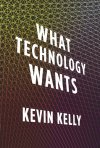
What Technology Wants
Kevin Kelly
This provocative book introduces a brand-new view of technology. It suggests that technology as a whole is not a jumble of wires and metal but a living, evolving organism that has its own unconscious needs and tendencies. Kevin Kelly looks out through the eyes of this global technological system to discover “what it wants.” He uses vivid examples from the past to trace technology’s long course and then follows a dozen trajectories of technology into the near future to project where technology is headed. This new theory of technology offers three practical lessons: By listening to what technology wants we can better prepare ourselves and our children for the inevitable technologies to come. By adopting the principles of pro-action and engagement, we can steer technologies into their best roles. And by aligning ourselves with the long-term imperatives of this near-living system, we can capture its full gifts. Written in intelligent and accessible language, this is a fascinating, innovative, and optimistic look at how humanity and technology join to produce increasing opportunities in the world and how technology can give our lives greater meaning.
-
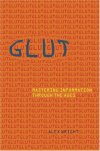
Glut: Mastering Information Through The Ages
Alex Wright
What do primordial bacteria, medieval alchemists, and the World Wide Web have to do with each other? This fascinating exploration of how information systems emerge takes readers on a provocative journey through the history of the information age. Today’s “information explosion” may seem like an acutely modern phenomenon, but we are not the first generation - nor even the first species - to wrestle with the problem of information overload. Long before the advent of computers, human beings were collecting, storing, and organizing information: from Ice Age taxonomies to Sumerian archives, Greek libraries to Dark Age monasteries. Today, we stand at a precipice, as our old systems struggle to cope with what designer Richard Saul Wurman called a “tsunami of data.”With some historical perspective, however, we can begin to understand our predicament not just as the result of technological change, but as the latest chapter in an ancient story that we are only beginning to understand. Spanning disciplines from evolutionary theory and cultural anthropology to the history of books, libraries, and computer science, writer and information architect Alex Wright weaves an intriguing narrative that connects such seemingly far-flung topics as insect colonies, Stone Age jewelry, medieval monasteries, Renaissance encyclopedias, early computer networks, and the World Wide Web. Finally, he pulls these threads together to reach a surprising conclusion, suggesting that the future of the information age may lie deep in our cultural past.
-
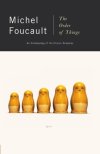
The Order of Things: An Archaeology of the Human Sciences
Michel Foucault
When one defines order as a sorting of priorities, it becomes beautifully clear as to what Foucault is doing here. With virtuoso showmanship, he weaves an intensely complex history of thought. He dips into literature, art, economics and even biology in The Order of Things, possibly one of the most significant, yet most overlooked, works of the twentieth century. Eclipsed by his later work on power and discourse, nonetheless it was The Order of Things that established Foucault’s reputation as an intellectual giant. Pirouetting around the outer edge of language, Foucault unsettles the surface of literary writing. In describing the limitations of our usual taxonomies, he opens the door onto a whole new system of thought, one ripe with what he calls exotic charm. Intellectual pyrotechnics from the master of critical thinking, this book is crucial reading for those who wish to gain insight into that odd beast called Postmodernism, and a must for any fan of Foucault.
-
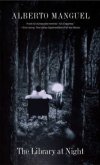
The Library at Night
Alberto Manguel
Inspired by the process of creating a library for his fifteenth-century home near the Loire, in France, Alberto Manguel, the acclaimed writer on books and reading, has taken up the subject of libraries. “Libraries,” he says, “have always seemed to me pleasantly mad places, and for as long as I can remember I’ve been seduced by their labyrinthine logic.” In this personal, deliberately unsystematic, and wide-ranging book, he offers a captivating meditation on the meaning of libraries.
